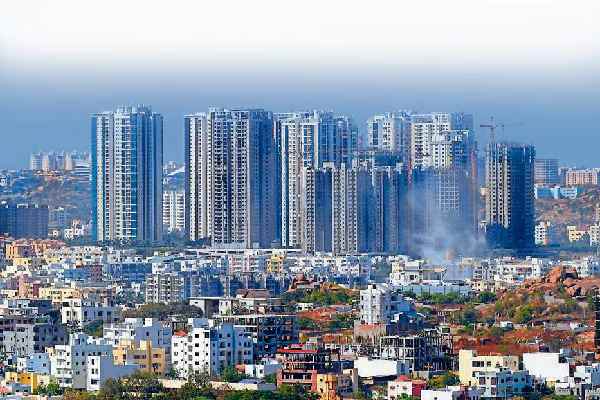The Current Crisis: Hyderabad’s real estate market is experiencing a significant slowdown, with declining sales of apartments and land. This crisis, which began over a year and a half ago, is driven by multiple factors, including high land prices, over-construction, unaffordable property rates, and broader economic challenges such as job instability and global economic slowdowns. Many properties remain unsold, and landlords struggle to find tenants at expected rental incomes. However, there are clear solutions that can revive the market and restore buyer confidence.
Lowering Property Prices
One of the most immediate ways to stimulate demand is to lower property prices. Builders must focus on affordability by introducing budget-friendly housing projects that cater to middle-class and first-time buyers. Developers should also reassess their pricing strategies to reflect market realities and avoid overvaluation.
Leveraging Lower Interest Rates on Housing Loans
The Reserve Bank of India’s recent reduction in the repo rate has resulted in a 25% drop in housing loan interest rates. This presents an opportunity for potential homebuyers to secure cheaper loans, making real estate investments more attractive. Builders and financial institutions should actively promote this benefit to drive sales.
Government Initiatives
The government has introduced multiple initiatives to support real estate, including the Swamih Fund, which assists in completing stalled housing projects, and the Urban Challenge Fund, which supports viable real estate projects, with a dedicated portion for Hyderabad. The Asset Monetization Plan helps fund infrastructure projects, indirectly benefiting real estate. At the same time, interest-free loans to states facilitate development projects like the Hyderabad Metro expansion and the Regional Ring Road, making surrounding areas more attractive for investment.
Tax Reforms and Investment Incentives
Recent tax reforms have created incentives for real estate investment. The increase in the no-tax slab to ₹12.75 lakhs allows more disposable income for potential buyers. The TDS threshold on rent has been increased to ₹50,000 per month, reducing tax burdens on landlords. Additionally, individuals now have the option to own two self-occupied properties without tax on notional rent, which encourages second-home investments. Changes in GST policies benefit builders, lowering construction costs and improving project feasibility.
Market Adaptation
Builders must shift their focus from high-end luxury projects to demand-driven development. Conducting realistic feasibility studies before launching new projects will prevent over-construction and market saturation. Additionally, embracing mixed-use developments that integrate residential, commercial, and recreational spaces can attract a wider range of buyers.
A return to the previous real estate boom may not be realistic, but strategic changes can create a stable and sustainable market. By lowering prices, leveraging financial incentives, and focusing on practical urban planning, Hyderabad can rebuild buyer confidence and revive its real estate sector. Developers, policymakers, and investors must work together to implement these solutions and ensure long-term growth.



































